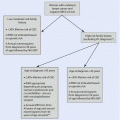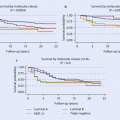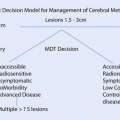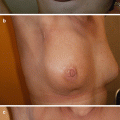Fig. 61.1
The Cassandra data set (Reproduced from Ref. 14 with permission from Prof Alison Leary FRCN)
The clinical domains of a CNS can be seen in detail in ◘ Table 61.1 [15]. This list is by no means exhaustive as the CNS adapts, extending and expanding their role and the facets of it in order to seamlessly adopt innovations in health care.
Table 61.1
Clinical domains of practice associated with the CNS
Family history and genetics (includes prevention, screening and prophylactic surgery) |
Benign breast conditions |
National Health Service Breast Screening |
Patients newly diagnosed with breast cancer |
Patients undergoing chemotherapy (and related side effects) |
Patients undergoing radiotherapy (and related side effects) |
Patients on endocrine therapy (and related side effects) |
Breast surgery |
Breast reconstruction |
Prosthesis fitting |
Management of menopausal symptoms |
Management of lymphoedema |
Management of fungating wounds |
Treatment-induced fertility issues |
Metastatic disease |
Social issues and finance |
Recovery, rehabilitation and follow-up (including lifestyle changes) |
The impact of the CNS can be illustrated using four domains, improving quality and experience of care, reinforcing safety, increasing productivity and efficiency and demonstrating leadership.
- 1.
Improving quality of care and enhancing the patient experience: managing the complex, individual and changing information and support needs of patients and carers, assisting patients in choices around treatment and care, enhancing recovery and delivering care flexibility and closer to home and facilitating the set-up of support groups
- 2.
Reinforcing safety: delivering safe, nurse-led services, identifying and taking action to reduce risks, performing rescue work and facilitating rapid re-entry into acute services as appropriate
- 3.
Increasing productivity and efficiency: intervening to manage the effects of treatment and symptom control, preventing unplanned admissions, providing nurse-led services that free up consultant resource and empowering patients to self-manage
- 4.
There is evidence that the workstrand of the CNS improves outcomes through saving resources and promoting efficacy. Their work overarches a number of different teams in order to assist with the smooth running of individualised patient care [17].
The cost-benefits of a CNS have been explored by the Royal College of Nursing, and these include reducing waiting times, avoidance of unnecessary and unplanned hospital admissions, reduced post-operative length of stays, reduced patient treatment drop-out rates, the freeing up of time patients spent with consultants, the introduction of innovative service delivery and improvements, direct specialist advice being given to patients and families, delivering services at the point of need and the education of health and social care professionals [18].
More importantly perhaps in a national survey of health advocacy groups, patients consistently ranked specialist nurses higher than other health and social care professional in regards to understanding their needs, being transparent and honest, designing and implementing care pathways and obtaining patient feedback [19].
Florence Nightingale said, «…medicine so far as we know, assists nature to remove the obstruction, but does nothing more. And what nursing has to do…, is to put the patient in the best condition for nature to act upon him». [20]. This may be interpreted to reflect many of the roles of the CNS. They assist in complex decision-making by explaining treatment choices, checking understanding, brokering on behalf of the patient, providing support, vigilance, rescue work, appropriate encouragement, co-ordination of care and case management and ensuring timely referrals are made, for example, to clinical psychology, fertility or other departments both internal or external to the hospital setting. Family and caregivers are also liaised with as guided by the patient, and much time is spent ensuring the patient is indeed in the best condition «for nature and the prescribed treatments to act upon them.»
61.2.2 Nurse Practitioners (NP)
NPs focus on assessment, diagnosis and treatment as well as health education and disease prevention [21]. Similarly these nurses should demonstrate an up-to-date knowledge of the speciality, be skilled in research, leadership, education and function at a strategic and operational level within the breast unit [6]. Although these specialist nurses incorporate education, management and research in their work, the main aspect of their role is in the delivery of direct patient care, usually within the diagnostic setting. NPs have extended the remit of their clinical care to incorporate additional functions that were traditionally allocated to physicians such as performing breast examinations, taking a patient’s history and ordering appropriate diagnostic tests.
The UK Royal College of Nursing describes the level of practice that a NP functions through the list below:
Making professionally autonomous decisions, for which they are accountable
Receiving patients with undifferentiated and undiagnosed problems and making an assessment of their healthcare needs, based on highly developed nursing knowledge and skills, including skills not usually exercised by nurses, such as physical examination
Screening patients for disease risk factors and early signs of illness
Making differential diagnoses using decision-making and problem-solving skills
Developing with the patient an ongoing nursing care plan for health, with an emphasis on health education and preventative measures
Ordering necessary investigations and providing treatment and care both individually, as part of a team, and through referral to other agencies
Having a supportive role in helping people to manage and live with illness
Having the authority to admit or discharge patients from their caseload and refer patients to other healthcare providers as appropriate
Working collaboratively with other healthcare professionals and disciplines
Providing a leadership and consultancy function as required [22]
The evidence and literature evaluating the effectiveness and safety of the NP role have been tremendously encouraging in respect to the value of the role in addition to the satisfaction from patients who have been seen by these specialist nurses [23, 24].
While there are aspects of overlap for the CNS and NP in relation to leadership, patient and staff education and service improvements, the NP role tends to be grounded in the diagnostic pathway for breast patients. It is usual that once the patient is diagnosed with breast cancer, the NP hands over care to the CNS who will act as the first point of contact (Key Worker) through modalities of the treatment trajectory and onto aspects of survivorship.
61.2.3 Consultant Nurses
The titles consultant nurse and nurse consultant are used interchangeably within health care, although some argue that nurse consultant can mean a nurse who is self-employed and acting as a consultant in an arena of nursing for a project when they may not in fact be working within a clinical arena or at an expert level [25]. Thus the title consultant nurse will be used in this chapter.
The consultant nurse role developed in the 1980s and refers to a nurse who is at the pinnacle of their clinical career ladder [25]. The genesis of this role was an attempt to retain senior nurses and their clinical expertise within nursing and at the bedside [26].
There are four components of the consultant nurse role which are expert practice; professional leadership and consultancy; education, training and development and service improvement and research and evaluation. Consultant nurses aim to possess skills and competencies similar to that of CNS’s but with greater breadth and complexity.
It is argued strongly [27, 28] that consultant nurses should have extensive expertise and knowledge in their particular speciality. They should also have a hands-on role in nursing practice, which enhances clinical credibility and enables effective role modelling. The consultant nurse role is divided into clinical work, academic work and education. These nurses should have achieved or be studying towards a PhD. Consultant nurses focus on the whole service they provide for, assisting in the contribution to research, service improvement activities while providing education to their peers and patients and availing themselves as a resource promoting expertise and quality care.
The consultant nurse should be a transformational leader who fosters a widening participation and collaboration. They incorporate a complex and analytical reasoning process to develop a shared vision and new approaches to running services. They should contribute to national and international strategies and policies and be seen as an expert in their field. Consultant nurses should identify current gaps in practice and generate new areas of research that seek to increase knowledge of the specialist area, enhance the effectiveness of treatment interactions and improve the overall quality of care within breast care. The knowledge, skills and expertise, personal qualities and attitudes and processes of a consultant nurse are illustrated in ◘ Table 61.2.
Table 61.2
The consultant nurse’s knowledge, skills and expertise, personal qualities and attributes and processes
Knowledge, skills and expertise in integrated sub-roles |
Nursing practice as a generalist/specialist |
Research and evaluation in practice |
Practice development and the facilitation of structural, cultural and practice change |
Education and learning in practice |
Consultancy: clinical to organisational |
Management, leadership and strategic vision |
Personal qualities and attributes
Stay updated, free articles. Join our Telegram channel
Full access? Get Clinical Tree
 Get Clinical Tree app for offline access
Get Clinical Tree app for offline access

|




